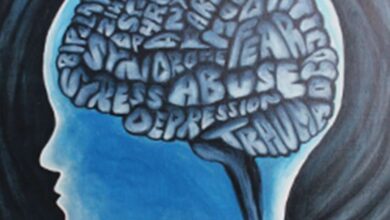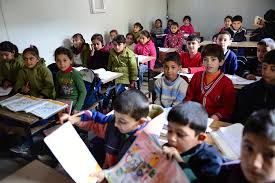Aging population and elder care

As the world’s population continues to grow older, the demand for elder care services is increasing. The aging population has become a significant challenge for societies and governments worldwide. In this article, we will explore the issues associated with elder care, such as the challenges, the impact on society, and the solutions to help address the needs of the elderly.
Introduction
In recent years, the world has witnessed an increase in the number of people living beyond the age of 65. As a result, elder care has become a significant concern for individuals, families, and governments. The aging population has led to a growing need for healthcare services, housing, and social services. This article will discuss the challenges faced by the aging population and the solutions that can be implemented to address these challenges.
The Challenges Associated with Elder Care
The aging population faces several challenges related to elder care. These include:
Healthcare
Older adults are more likely to experience chronic health conditions, which require regular medical care. This demand for healthcare services puts significant pressure on healthcare systems and resources.
Social Isolation
The elderly are at risk of social isolation, leading to loneliness and depression. This isolation is often due to limited mobility, transportation, and social interactions.
Financial Challenges
Older adults may face financial challenges due to fixed incomes, rising healthcare costs, and limited employment opportunities.
Elder Abuse
The elderly are at risk of abuse and neglect, including physical, emotional, and financial abuse.
The Impact of the Aging Population on Society
The aging population has a significant impact on society, including:
Economic Impact
The aging population places a significant strain on healthcare and social services, increasing the costs associated with caring for older adults. This economic impact extends beyond healthcare, including housing, transportation, and employment.
Workforce Impact
As the aging population continues to grow, there will be a shortage of workers to care for the elderly. This shortage will extend beyond healthcare, including transportation and social services.
Family Impact
Families may face challenges in caring for older adults, including emotional and financial strains. Family caregivers may also experience burnout due to the demands of caring for older adults.
Solutions to Address the Needs of the Elderly
Several solutions can be implemented to address the challenges faced by the aging population. These include:
Healthcare Solutions
Healthcare systems can be restructured to meet the needs of older adults, including preventative care, chronic disease management, and palliative care.
Social Solutions
Social interventions, such as senior centers and transportation services, can help reduce social isolation and promote social interactions.
Financial Solutions
Financial solutions, such as retirement planning and affordable housing, can help address the financial challenges faced by older adults.
Legal Solutions
Legal solutions, such as elder abuse prevention and protection, can help prevent abuse and neglect of older adults.
The Aging Population: A Global Concern
The aging population is a significant concern for individuals, families, and governments worldwide. The United Nations estimates that by 2050, one in six people will be over the age of 65, and the number of people aged 80 and over will triple. With the increase in life expectancy, the demand for elder care services is expected to rise.
The aging population faces several challenges, including healthcare, social isolation, financial difficulties, and elder abuse. Let’s explore each of these challenges in more detail.
Healthcare Challenges
The aging population is more susceptible to health problems, such as chronic diseases and conditions, which can require ongoing medical care. The demand for healthcare services for the elderly is expected to rise significantly in the coming years.
One of the biggest healthcare challenges facing the elderly is access to affordable healthcare services. Many older adults live on fixed incomes, making it difficult to afford healthcare services. In addition, healthcare systems are often not designed to meet the unique needs of the elderly, resulting in inadequate care.
Another healthcare challenge facing the aging population is medication management. Older adults often take multiple medications, which can lead to adverse drug interactions and complications. Ensuring that medications are properly managed is essential for maintaining the health and well-being of older adults.
Social Isolation
Social isolation is a significant challenge facing the aging population. As people age, they may experience a decrease in social interactions due to factors such as retirement, mobility issues, and the loss of friends and family members. Social isolation can lead to depression, anxiety, and a decline in physical health.
To combat social isolation, it is essential to create social networks and provide opportunities for older adults to engage in activities that promote social interaction. Programs such as senior centers, community events, and volunteer opportunities can help older adults stay connected and engaged.
Financial Challenges
Many older adults face financial challenges as they age, particularly those on fixed incomes. The cost of healthcare, housing, and other essential expenses can be challenging to manage, especially for those who do not have a retirement plan or adequate savings.
To address financial challenges, it is essential to provide financial education and resources to older adults. This can include financial planning, budgeting, and access to government assistance programs.
Elder Abuse
Elder abuse is a growing concern for the aging population. Elder abuse can take many forms, including physical, emotional, and financial abuse. Older adults who are victims of elder abuse may experience a decline in physical and mental health and may become isolated from their social networks.
To prevent elder abuse, it is essential to implement legal solutions, such as elder abuse prevention and protection laws. Educating the public about elder abuse and providing support services for victims of elder abuse is also essential.
Solutions for Elder Care
To address the challenges facing the aging population, solutions must be implemented at the healthcare, social, financial, and legal levels.
Healthcare solutions can include restructuring healthcare systems to meet the unique needs of the elderly and providing access to affordable healthcare services. Medication management programs can also help ensure that older adults receive the proper care they need.
Social interventions, such as community programs and volunteer opportunities, can help combat social isolation and promote social interaction among older adults.
Financial solutions can include providing financial education and resources to older adults, including access to government



